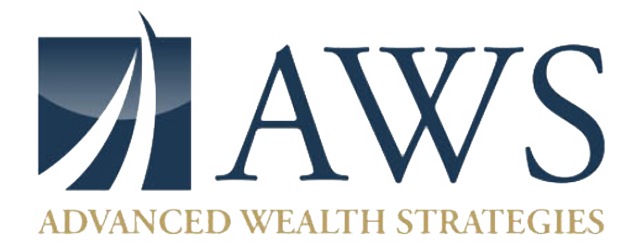
1031 EXCHANGE
For accredited investors seeking property investment opportunities, the advantage of deferring capital gains, passively owning institutional quality real estate-diversified by geography and property type, with the potential to earn an annual cash flow paid monthly, possibly tax-advantaged, could make a 1031 DST Like-Kind Exchange a key wealth building strategy for you, your family and your heirs. Whenever you sell an investment property and make a profit, you are subject to capital gains taxes. A 1031 Exchange allows you to sell your real estate property, reinvest the proceeds in “like-kind” real estate, and defer the payment of taxes on that sale. The Internal Revenue Service (IRS) defines like-kind as property that is similar in nature or character, regardless of differences in grade, property type or quality.
USING A DELAWARE STATUTORY TRUST (DST) TO COMPLETE YOUR 1031 EXCHANGE.
In several cases, 1031 Exchanges are completed by the investment property owner with the help of a real estate agent. However, there is another alternative — a passive solution to satisfying a 1031 Exchange — and that is a Delaware Statutory Trust (DST).
Properly structured DSTs are recognized by the IRS as qualified replacement property for real property. Investors in a DST are not direct owners of the real estate. The trust holds title to the property, for the benefit of many investors, each of whom has a “beneficial interest” and is treated as owning an undivided fractional interest in the property.
Simply put, DSTs provide a turn-key solution for investors who may not have the time, energy or real estate expertise to find and/or manage a replacement property. DSTs can be used for all or a portion of the sales proceeds. Also, be mindful that there are fees and expenses associated with a DST.
WITH ITS UNIQUE STRUCTURE, A DST CAN OFFER MANY BENEFITS TO INVESTORS:
It is important to note that all investments in a DST involve certain risks, including the potential lack of return, loss of principal and tax consequences. The performance of a DST will depend on the tenant’s ability to pay rent. Properties may be leveraged and will be liquidated at the discretion of the DST, which may encounter difficulty in selling any or all of them. No public market exists, nor is likely to develop for the DST interests.
Professional Asset and Property Management
Passive Ownership
Non-Recourse Institutional Financing
Lower Minimum Investments
Portfolio Diversification
WHO SHOULD CONSIDER A DST INVESTMENT?
Real estate owners who wish to consolidate their holdings of multiple smaller properties into fewer large properties for ease of management.
Real estate owners who are seeking to diversify their real estate portfolio into higher quality investment grade real estate, but lack the experience, resources or capital required to manage or acquire larger institutional quality real estate.
Real estate owners who are retiring or seeking a lifestyle change and would like a more passive role in their real estate.
Real estate owners who don’t want to be a landlord anymore and would like to defer their capital gains tax.
Real estate owners who are seeking potentially greater cash flow and possible appreciation return potential than they are currently receiving from their real estate investments. Note all investments, including real estate, carry the risk of loss in addition to possibility of gain.
Real estate owners who are in their 45-day identification period and are seeking a viable replacement property option to satisfy their 1031 exchange or need a backup option in case their primary property falls through.

WHY USE A FINANCIAL ADVISOR FOR 1031 REPLACEMENT PROPERTIES?
Selling an investment property and completing a 1031 Exchange is an important financial decision. The assets involved in a 1031 Exchange may represent a substantial amount of money and a significant portion of net worth. We recognize and appreciate this and take our time to provide you the information, knowledge and guidance you need, regardless the size of your exchanged based on the dollar value.
There are several parties involved in a 1031 Exchange including accountants, attorneys, sponsors, and more – each playing an important role. Our role, and main goal, is to simplify the process and help you fully understand the bigger picture, and what makes sense for your unique financial goals and situation.
Advanced Wealth Strategies is here to:
Help you make sense of a complicated process.
Act as a sounding board.
Listen and answer your questions and concerns.
Get to know you and take the time to thoroughly inform you.
Empower you to feel confident in your financial decisions.
*AWS does not provide tax advice & consult your tax professional before implementing any financial strategy.
*To be an accredited investor, an individual must have had earned income that exceeded $200,000 (or $300,000 together with a spouse) in each of the prior two years and “reasonably expects the same for the current year,” according to the SEC. Or, the individual must have a net worth of more than $1 million, either alone or together with a spouse. With the passage of the Dodd-Frank Act, this now excludes a primary residence as being eligible as part of an investor’s net worth (investors who had existing accredited investments but who now fail the net-worth test without their residence being valued were grandfathered).
The information, suggestions, and opinions included in this material is for informational purposes only and cannot be relied upon for any financial, legal, tax, accounting or insurance purposes. Advanced Wealth Strategies, Inc. will not be held responsible for any detrimental reliance you place on this information. Investments in a DST involve certain risks, including the potential lack of return, loss of principal and tax consequences. Investment Advisory Services offered through EverStar Asset Management, LLC, a Registered Investment Adviser. EverStar Asset Management, LLC and Advanced Wealth Strategies, Inc. are independent entities. The DST sponsor determines whether to accept any individual’s subscription documents. Portfolio management services provided by a third party sub-advisor.

